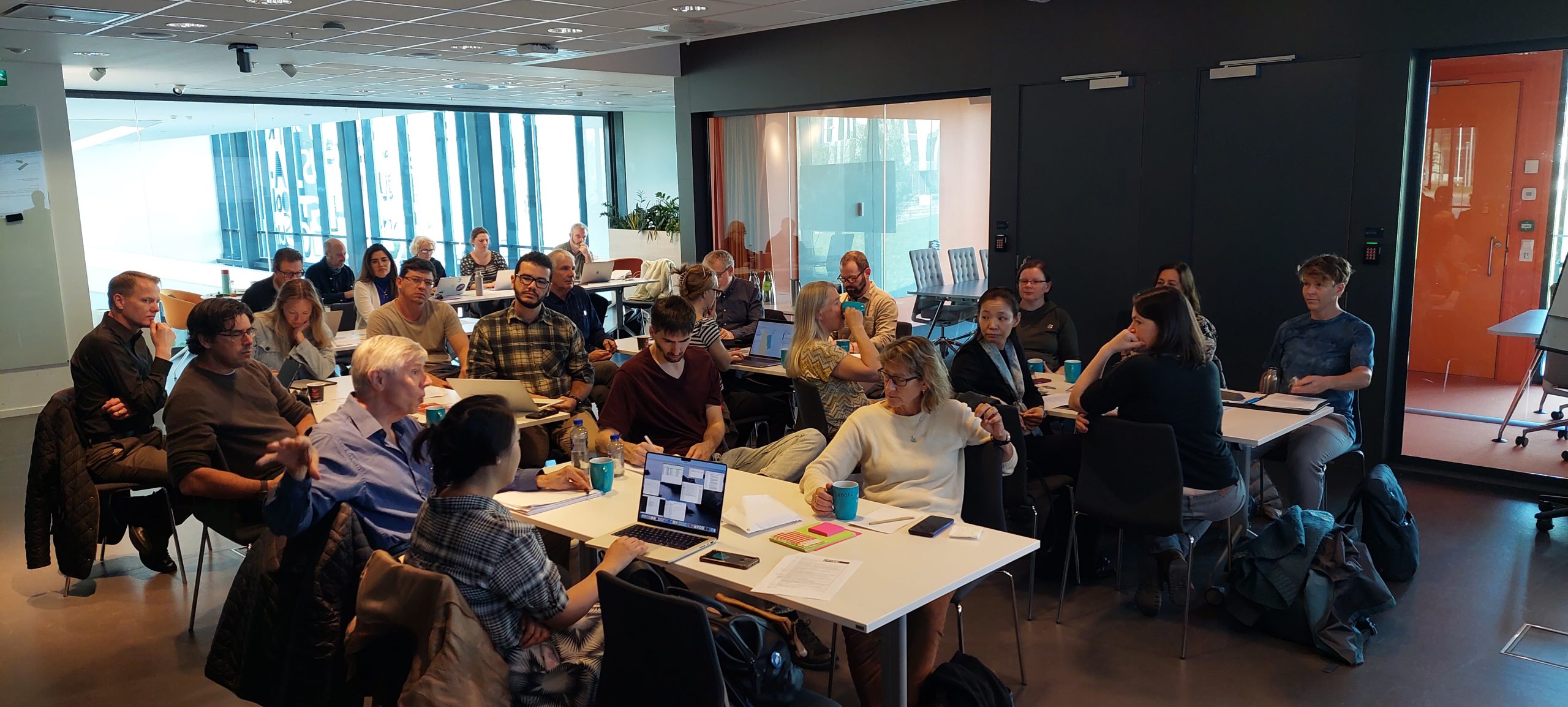The third of our scoping studies’ workshops took place between 10-12th May 2023, in Fornebu, Norway. Recommended by the CORDAP Scientific and Advisory Committee, these workshops aim to explore new ways of protecting and restoring corals and help to identify key areas for our investment in R&D.
Providing habitat, feeding grounds and nurseries for many species, including commercially important fish, cold-water corals are known to be ecologically important. They have also been designated as indicator species for classifying vulnerable marine ecosystems due to the key role they play in supporting biodiversity. Despite this, there are still large gaps in our knowledge.
The difficulty and associated costs of accessing remote deep-sea ecosystems, which can be found up to 4,000m below the ocean surface, have contributed to the current lack of research and active restoration.
Co-hosted with REV Ocean, our latest Scoping Study workshop brought together a group of experts to address this, and explore how CORDAP can best help to accelerate global work to save cold-water corals.
What’s in a name?
One of the many things that was discussed at the meeting was how the scientific community talks about non-tropical corals. Because some species are found in shallow, cold environments and others in places like the Red Sea, where the water is deep but not warm, they are often interchangeably referred to as either deep-water or cold-water corals.
In order to speak more clearly about how science can help preserve and restore these amazing organisms, the group of experts discussed the use of a single term to describe non-tropical corals. As coral species found in the deep sea typically inhabit colder waters, the workshop participants agreed to label them “cold-water corals” going forward. While the deep sea is out of sight, this important ocean extension shall not be out of mind. As stated by the scientific experts “Agreeing on “cold-water corals” also helps closing the distance gap that might come with the term “deep-water”, as the public can easily relate with a feeling they have experienced: being cold”.
Our Goals:
The aim of the workshop was to identify gaps in the field of cold-water coral reef restoration and conservation, and create a roadmap for funding to fill those gaps.
We held plenary talks and then breakout groups to answer specific questions on four key topics:
- cold-water coral conservation
- cold-water coral ecological restoration
- biological knowledge to support cold-water coral restoration
- logistical challenges for research, restoration and protection.
During the workshop, a team of experts also presented an overview of existing studies of cold-water corals and identified three areas that need support:
- Work to identify where knowledge gaps are and what are the barriers preventing better understanding of these species.
- Further research on global distribution, on measures already in place to conserve habitats and their success levels, and on current restoration technologies and how effective these are.
- Creation of a roadmap, recommending where to prioritise future R&D investment areas.
As part of CORDAP‘s scope, inclusion and diversity amongst attendees was important, to guarantee that distinct geographical perspectives are considered when discussing the global state of cold-water corals. Participants came from 12 countries distributed all over the globe; 59% of participants were female and 41% male.
Participant affiliations:
Charles Darwin Foundation, Galapagos, Ecuador
Chiba Institute of Technology, Japan
Fisheries and Oceans Canada; University of Victoria, Canada
Florida State University, USA
Institute of Marine Research, Norway
KAUST, Saudi Arabia
MBARI, USA
Memorial University of Newfoundland, Canada
Monaco Scientific Centre, Monaco
Museo Argentino de Ciencias, Argentina
NOAA, USA
REV Oceans, Norway; Nekton Consortium
Temple University, USA
Universidade Federal Rural de Pernambuco, Brazil
University of Azores, Portugal
University of Bristol, UK
University of Essex, UK
University of Gothenberg, Sweden
University of Sao Paulo, Brazil
We’ll be reporting back on the outcomes from our cold-water coral workshop later this year. Meanwhile, you can find out more about cold-water corals here.


